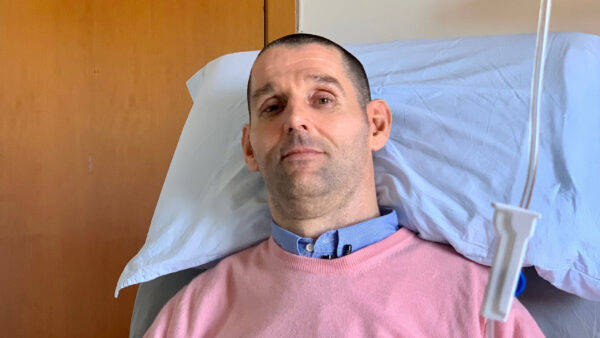Church leaders in Italy call for a culture of life after the first assisted suicide in Italy. Life is a gift and has urged greater closeness to the sick and suffering said Archbishop Angelo Spina of Ancona after the death on Thursday of Federico Carboni, the first person in the country to successfully avail himself of assisted suicide.
Speaking to local papers after Carboni’s passing, Archbishop Angelo Spina of Ancona said, “death must be accepted but never provoked.”
“The Catholic Church respects every person and stops in the face of the mystery of suffering and of illness,” he said, saying the church’s role in these cases is “to stay close, to care for in all possible ways, that is, to heal.”
Science and medicine have provided many resources in terms of palliative care, Spina said, adding, “Life is a gift and should never be touched.”
Carboni, 44, was a native of Senigallia, which sits along the Adriatic coast and belongs to the province of Ancona. A former truck driver, Carboni was severely injured in a traffic accident nearly 12 years ago, which left him in a coma. He woke up to discover that he had become a quadriplegic. He has been facing many kinds of maladies during these years.
The Luca Coscioni Association helped Carboni in his legal battle for access to assisted suicide, which he won. Yesterday, he died after being administered a lethal dose of medication in the presence of his family and the doctor overseeing the process.
In 2019, Italy’s Constitutional Court partially decriminalized assisted suicide under certain conditions, requiring local health authorities and an ethics board to approve each request. Yet they ruled that parliament should also pass a law regulating the practice.
The Italian parliament, which is currently debating a draft assisted suicide bill, has yet to pass that legislation.
In the absence of a law regulating assisted suicide, many Italians have traveled to nearby countries with broader access to euthanasia.
When the Italian courts initially opened the door for Carboni’s assisted suicide in November, Monsignor Gianfranco Girotti, Regent Emeritus of the Apostolic Penitentiary, told the Italian newspaper La Repubblica that the decision was “an ethical defeat for everyone.”
“To allow a person to die, even if burdened by a terrible disease, is a defeat. Life is always sacred. Absolutely such an intervention is to be avoided,” he said, calling euthanasia “a crime against human life because, with this act, man chooses to directly cause the death of another innocent human being.”
“On the human level it’s easy to think only of suffering. However, it cannot be thought that it is legitimate to take the life of a person,” he said.
Asked about the personal freedom of the individual to choose in situations like that of Carboni, Girotti said that in this case, “it would not be freedom, but liberticide, the suppression of all freedom because one does not choose life but death.”
In his interview with the local paper Il Resto del Carlino, Spina referred to the 2019 law partially allowing assisted suicide: “We live in a culture, as it has been defined for some time, of death. Instead, we must promote the culture of life.”
He stressed the importance of being close to those who suffer and feel alone but insisted that science and medicine “must be at the service of the human person and must promote all the good of health and life, and not take it away. After all, that’s what the Hippocratic Oath affirms.”
When accompanying the sick and dying, the church must be close and try to help the person find hope, “because, with Jesus, suffering has become a way of salvation,” Spina said. “The Way of the Cross is not the way of death, but the way of life.”



